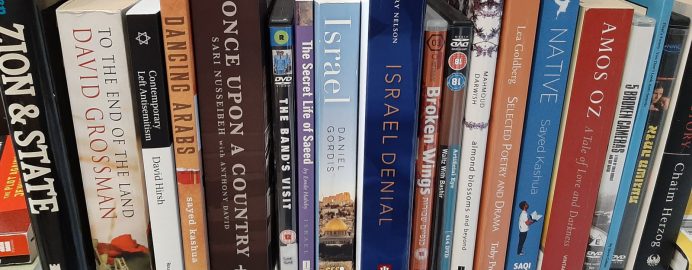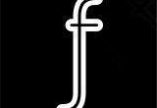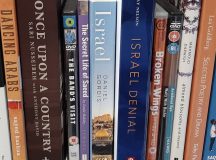Each week Fathom writers will recommend five Israel-related books, films or podcasts to help our readers through the lockdown. Find out what was selected this week by Claire Spencer, Eve Garrard, Dave Rich, Emanuel Shahaf and Shalom Lappin. See earlier recommendations here, here and here.
Eve Garrard recommends Anti-Judaism by David Nirenberg, and Israel Denial: Anti-Zionism, Anti-Semitism, and the Faculty Campaign Against the Jewish State by Cary Nelson
These are both enormous books (610 pp. and 548 pp. respectively), but I’m recommending them together because they make an exceptionally illuminating pair. Nirenberg’s extraordinarily scholarly book focuses on how the idea of Jewishness has been used and exploited across the centuries – indeed, across millennia – as a lens through which various non-Jewish groups and individuals can discern those whom they regard as threats or enemies in one way or another. The variety of ways in which Jewishness can be represented as dangerous or hostile is revelatory. And although Nirenberg is examining a depressing issue, so rich and wide is his scholarship and so lucid is his prose that it’s not a depressing book to read.
Cary Nelson’s Israel Denial provides a magisterial treatment of academic hostility to Israel, and the ways in which that hostility bleeds into antisemitism, within contemporary American universities, thereby providing a current exemplification of Nirenberg’s thesis. Both books are deeply disturbing, of course, as is any adequate treatment of these topics; Nelson’s work has the added resonance of showing us, in fully-researched and highly contemporary detail, just how profound are the distortions of truth about Israel which are currently being peddled by some American academics. In this deplorable and dishonest activity the academics in question are supported and encouraged by other parts of those university institutions, whose task it should be to assess and where necessary criticise failures of research accuracy and integrity – failures, that is, of exactly the kind which Nelson so judiciously and systematically details.
These two books are, in their different ways, admirable exemplars of research which is both scholarly and readable; both show us how much there is to investigate, and how much is in need of radical correction, in the long history of hostility to imaginary Jews, and in the current richly exploitative version of that hostility in academe.
Eve Garrard is Honorary Research Fellow in the Department of Philosophy at the University of Manchester.
*
Claire Spencer recommends the film Beaufort
During my time at Chatham House, whenever discussions got heated over Israel, I would say (or more often mutter to myself): ‘If Israeli politics were anything like the Israeli film industry we might be getting somewhere’. The actual industry may, of course, be a different matter. But for sheer creativity and topicality, Israeli films are second to none in my book. A gay love affair between two Haredim, anyone? Three Arab women living in Tel Aviv who see off a dodgy Islamist rapist … ? It’s all there, brilliantly done, and often in artistic collaborations that ride roughshod over local taboos and political divisions. In 2007-8, the quietly unassuming film director Joseph Cedar came to present a screening of his new film ‘Beaufort’ at Chatham House. I had never seen anything so subversive. The story of a small IDF contingent hanging on long after the end of the 1982 war at the atmospheric Crusader castle in southern Lebanon ‘does not centre on the war but their retreat,’ according to the Rotten Tomatoes summary of the film. There is very little action, as such. The enemy is unseen, materialising only as a series of bomb attacks to interrupt the bored soldiers’ muted, sun-and-cigarette-drenched dialogue. It is the futility of the exercise that is highlighted, inter alia, through a television interview with the father of one of the soldiers. We see their youth, spent waiting for nothing very much except the next attack and the long-awaited orders to withdraw, slowly dwindling away in petty disagreements. As a depiction of pointlessness and claustrophobia, what better film to watch during a lockdown? Beaufort did well in Israel at the time of its release, but was overshadowed internationally by the equally brilliant film about the Lebanese war, Waltz with Bashir. Both deserve a second viewing, but it is Beaufort that captures our current moment in which we face an invisible enemy and a world that is changing, quite literally, under our feet.
Claire Spencer is an independent consultant with the British Council working on the Hammamet series of conferences that fosters greater links between the UK and North Africa.
*
Emanuel Shahaf recommends Yossi Klein Halevi’s Letters to my Palestinian Neighbour
This book is a wonderful presentation of the Israeli narrative. It is beautifully written, sensitive and sensible, giving the reader a clear picture of the challenges we face in reaching a mutual understanding and peace between Jews and Palestinians in Eretz Israel/Palestine. The book is important for anyone who wants to get a feeling for what the conflict is about, especially its emotional aspect. While under the present political reality the book doesn’t offer much hope for a timely resolution of the conflict, it still manages to leave the reader with a positive feeling, which is credit to the author’s balanced writing.
I have one criticism. Despite the author’s understanding of the deep love and commitment that both sides feel for the land they must eventually agree to share, he does not consider alternatives to the venerable two-state solution, even though that approach now appears nigh impossible to implement. It is a pity that he summarily dismisses one of the more realistic alternatives, a federation (without calling it by name) with a dire warning and a misleading analogy.
Emanuel Shahaf is Director of the Federation Movement.
*
Shalom Lappin recommends The Israeli-Palestinian Peace Negotiations, 1999-2001 Within Reach by Gilad Sher and the film The Band’s Visit
Sher’s book was originally published in Hebrew as ‘Be-Merchak Ha-Nigia’a‘, Yedioth Ahronot, Tel Aviv, 2001. Sher was Director General of Ehud Barak’s office, and he played a major role in Israel’s negotiations with the Palestine Liberation Organisation at both Camp David and Taba during 2000-2001. The book provides a detailed account of the diplomatic process. It offers invaluable insights into the extent to which the sides achieved convergence, and the variety of reasons that the effort collapsed, with the unfortunate consequences that followed. It is an important historical document for understanding the Israeli perspective on the Oslo negotiations.
And I’d recommend watching The Band’s Visit (2007). An Egyptian police band arrives at Ben Gurion Airport in order to play a concert in Petah Tikvah. Through a misunderstanding over place names they end up stranded in a small town in the Negev, where they are forced to spend several days, hosted in the homes of local residents. The interaction between the band members and the people of the town is portrayed with nuance and humour. The film explores themes of cultural difference and personal empathy. It is both moving and understated.
Shalom Lappin is Emeritus Professor of Computational Linguistics, King’s College London; Professor of Computational Linguistics, and Director of the Centre for Linguistic Theory and Studies in Probability, University of Gothenburg. He was elected a Fellow of The British Academy in 2010.
*
Dave Rich recommends Marc Goldberg’s Beyond the Green Line: A British volunteer in the IDF during the Al-Aqsa Intifada
Most books about the Israeli-Palestinian conflict come with the author’s own biases laced throughout. Few, though, are as honest and self-aware as Marc Goldberg’s intensely personal account of his attempt to prove his human worth by volunteering in the IDF. Marc grew up a lost Jew in north London and sought a home and an identity in the toughest of Israel’s combat units. He graduated top of the class and then served during the heat of the Second Intifada, where his illusions were slowly chipped away by every encounter with the tawdry reality of that conflict. His account takes in ambushes in the night, street patrols that turn into riots and – in one surreal turn of events – a PR visit to the US where he dined with Elie Wiesel and Michael Oren. The confusion of war merges with Marc’s own confusion about the value of his service. But there is no ideological grandstanding in this account, nor does Marc ever claim to be a perfect soldier: just another young man trying to find his place in a big story. He’s not the first writer to tell this tale, but few have done it with as much humility, honesty and humour.
Dave Rich is Head of Policy at the Community Security Trust and an Associate at the Pears Institute for the Study of Antisemitism at Birkbeck, University of London.



































Comments are closed.